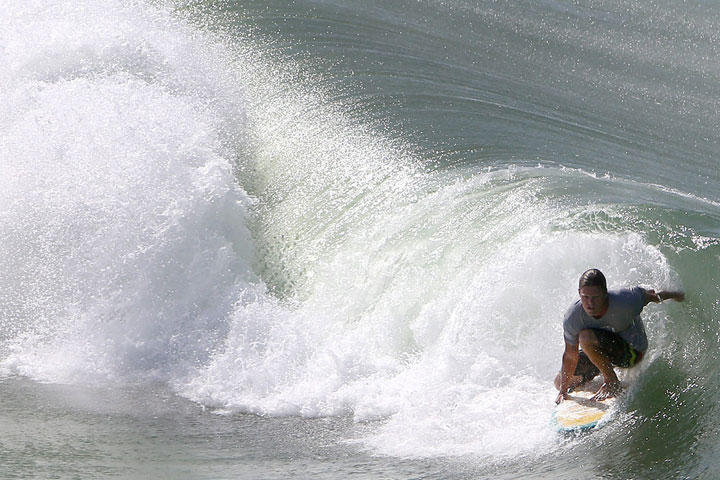It’s a rare bacteria thriving in Florida’s warm sea waters, sparking a string of illnesses and even two deaths in the sunny southern state. Health officials are warning beachgoers about Vibrio vulnificus, but they’re also trying to dispel rumours that the nasty bacteria is “flesh-eating.”

The bacteria has infected eight people and killed two more this year in Florida, according to U.S. reports. It’s found in warm marine waters – if people swim with open wounds, or eat contaminated seafood, they could come in contact with the germs.
“People get vibrio by swimming, wading and playing in salt or brackish waters with open wounds or scratches or by eating undercooked or raw shellfish, particularly oysters. Vibrio is rare but can be a serious disease,” Dr. Carina Blackmore, Florida’s Deputy State Epidemiologist, said in a video put together by the health department.
“The best way of protecting yourself from infections from vibrio is by performing good wound care, and you do that by covering the wounds with dry, clean bandages until they’re healed and pay attention to minor wounds, scratches and blisters…,” she said.
While it’s incredibly rare – last year, there were about 32 cases in Florida – the infection can lead to vomiting, diarrhea, and stomach pain similar to symptoms of a stomach flu.
READ MORE: Suspected use of flesh-eating drug, Krokodil, unconfirmed, police say
Handfuls of U.S. reports suggest that when the bacterium infects an open wound, it can lead to skin ulcers, akin to “flesh eating.” The bacteria doesn’t eat the flesh, but it can lead to infection. In some cases, amputation is required if infection is severe enough.
Last August, health officials had their hands full in making clarifications about the bacteria. Ultimately, Florida’s Department of Health for Pinellas County issued its own “Myth Buster” report.
“The naturally occurring organisms in the vibrio family have been in the news this week, but a lot of ‘myth information’ has scared beachgoers and visitors,” Maggie Hall, the department’s spokesman said, according to one outlet.
Hall said it’s not flesh-eating, contrary to reports. “There is no such medical term and the organism is not a Pac-man consuming pac-dots,” she said.
On Friday, the department put together another press release to correct “inaccuracies about Florida’s beach water.” It suggests its warning is a routine measure as vibrio infections typically pick up between May and October.
READ MORE: Krokodil, a flesh-eating street drug, is in Canada, reports suggest
“Annually, the department issues a release to remind Floridians of ways to protect themselves and minimize exposure to a naturally occurring bacterium…Florida’s beaches and water are safe to enjoy responsibly – the risk of infection is minimal if you take proper precautions,” it said.
carmen.chai@globalnews.ca
Follow @Carmen_Chai
- Solar eclipse eye damage: More than 160 cases reported in Ontario, Quebec
- 3 women diagnosed with HIV after ‘vampire facials’ at unlicensed U.S. spa
- ‘Super lice’ are becoming more resistant to chemical shampoos. What to use instead
- Canadian man dies during Texas Ironman event. His widow wants answers as to why




Comments